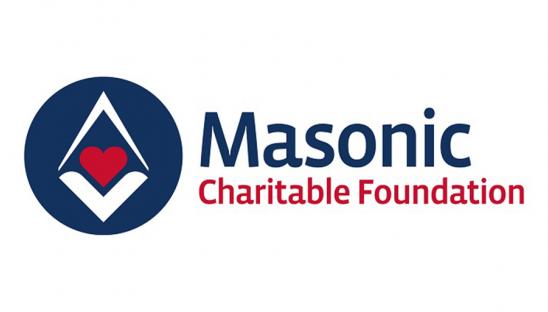
End of Life Care for people experiencing homelessness

St Gemma’s Hospice worked with organisations across Leeds to develop and improve palliative and end of life care services for people who are homeless and vulnerably housed.
Title
About this innovation example
Project and outcomes
Project overview
In 2018 Leeds City Council published its Homeless and Rough Sleeping Charter, which prioritised the health needs of rough sleepers and highlighted the importance of improved joint working between support services. In the same year, St Gemma’s 10 year strategy identified the need to remove barriers and promote equality of care.
The hospice realised it had a lot to learn about supporting people who are homeless and vulnerably housed. On the occasions when homeless people had been admitted to the in-patient unit (IPU), there had been some challenges because staff were not trained to manage the patient’s complex needs.
A multi-agency steering group came together to look at the palliative and end of life care needs of homeless and vulnerably housed people in Leeds, and identify how these could be met. The group included St Gemma’s; Sue Ryder Wheatfields Hospice; the Leeds Health and Inclusion Team; St George’s Crypt (charity working with the homeless, the vulnerable and those suffering from addiction in Leeds); Bevan Health Care (GP offering services to those who are homeless or in unstable accommodation) and the University of Leeds Academic Unit of Palliative Care.
Funding was secured through a Hospice UK grant from The Masonic Charitable Foundation and a project to improve palliative and end of life care for people who are homeless in Leeds began during the coronavirus pandemic. This included a Senior Nurse Practitioner working 1 day per week as part of the service.
Outcomes
When homeless and vulnerably housed people are referred to the service they are holistically assessed to help ensure they receive the treatment and support that is right for them. This might include:
- co-ordinating support from different services
- advocating for patients and supporting them to access healthcare settings such as chemotherapy, renal dialysis or opticians appointments
- re-connecting patients with loved ones
- specialist symptom management
- emotional, psychological and social support
- bereavement support
- helping patients understand their choices and options.
Two years after the service began, there are 53 patients on the project caseload.
The hospice now has strong links with a wide network of health and social care professionals supporting homeless people.
Facilitators, challenges and advice
Key Facilitators
The steering group members had good relationships from the start, which helped them collaborate and learn from each other. As a result, Hospice staff have been upskilled to better understand and support the complex needs of those experiencing homelessness, whilst staff from homelessness services are now more aware of the support a hospice can offer.
Continuity of care is important to help build trust with patients. For this reason, there is an agreement that the Senior Nurse Practitioner from St Gemma’s works with homeless and vulnerably house people across the whole of Leeds (wider than the hospice’s usual catchment area).
In 2021 the service won the Nursing Times team of the year award – this was pivotal in getting recognition and raising its profile.
Challenges
It was difficult to predict the need for the service. St Gemma’s estimated that the hospice had cared for six homeless patients in the last five years, but this was more likely to be a reflection of barriers to care than a reflection of true need. The hospice knew there would be a steep learning curve to understand and overcome these barriers.
Organisations were keen to be involved in the new service but also wary. This seemed to be due to misunderstandings about palliative and end of life care, and not wanting service users to die. St Gemma’s needed to prove the value of the service in order to engage with partner organisations.
Tips and advice
Hospices can’t deliver a service for people experiencing homelessness on their own – we are specialists in palliative and end of life care, but not homelessness or addiction. It’s important to form a steering group that’s made up of people who are enthusiastic about the service and have all the relevant knowledge and skills. Try to get as many people on board as you can and learn as much as you can.
Don’t give up! Perseverance is key to building relationships and trust. Knock on every hostel door and pop in for a coffee regularly. Don’t be deterred if it take several visits to a patient before they feel confident to engage with you.
Be friendly and reassure people that palliative care isn’t scary. Have a broad criteria for referrals - the service is as much about advocacy and co-ordination as it is about clinical treatment.
Find commonalities between hospice care and other services. For example, lots of patients have key workers they have known for years. The key worker might have already begun discussions about the patient’s wishes for the end of their life – but they probably won’t refer to this as Advance Care Planning and might not have made a record of the conversation. This is a good opportunity to explain why it’s important to record and share the patient’s wishes and help the key worker ensure they get the right support.
Future development
The project has been so successful that more staff capacity is needed. The Senior Nurse Practitioner now works 2 days per week for the service but a full time nurse is needed.
St Gemma’s would like to employ a peer navigator – someone with lived experience who can support patients with activities such as going to appointments.
The team would also like to provide more formal training in health inequalities for the Senior Nurse Practitioner.

Masonic Charitable Foundation
We would like to acknowledge the generous support provided by the Masonic Charitable Foundation through the Hospice UK Grants programme, without which this project would not be possible.

